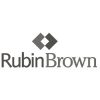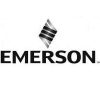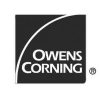
Coaching for Improved Work Performance (Practical Tips)
Performance Deficiencies
When your direct report exhibits performance deficiencies, working with him to improve can entail delicate, high stakes conversation. If it doesn’t go well, you could demotivate him and cause him to think about walking. What is the best way to approach coaching for improved work performance?
Should you be a cheerleader and stick with the positives? Do you let him do a lot of the talking and discover the solution himself? Or should you be firm and let him know he needs to shape up or ship out? In this case example, we’ll explore 3 alternatives and provide 3 keys for success. Then, next time you are in this situation, you’ll be well prepped to handle it.
The Situation
You are a senior executive at a chemical refining company. You helped hire Brian, a middle manager who works for you, from another company several years ago.
Brian is bright and has promise. Right now, though, his performance is just adequate. He does what his job requires, but he’s not standing out or taking the initiative on projects.
You are trying to influence Brian’s development by coaching him in a Q4 collaborative way. You monitor his work and discuss with him his commitment to his job and how he could shine.
How to Coach Employees
Despite your coaching, Brian’s performance is still lacking. Maybe it has to do with your coaching effort. Which of the following do you feel is the best tactic to coach for improved work performance?
Your Choices:
No, please try again.
No, please try again.
Coaching for Change
Actually, each of the three choices is one element of the formula. Since you’ve already tried coaching but not had a lot of success, the best approach here to coaching for improved work performance is C. Here’s why.
Solicit the Employee’s Ideas
Choice A is a good start, but you need to do more than just this. As a fundamental, if coaching doesn’t seem to be working, check to be sure you are not simply doing all the talking. Brian will be much more motivated if his coaching is a form of self-discovery — that is, if you give Brian the opportunity to express what he thinks is missing and his ideas for doing better. Even if it’s close to your own ideas, it means so much more to the employee if he generates his own strategy for improvement. See C for how to round this out.Positive is Good–But More is Needed
As Choice B suggests, it’s important to be positive about motivation in a coaching session. Using implied or stated threats to someone’s future might be tempting when managing poor performance. However, threats are not likely to help to bring energy and resourcefulness about improving.On the other hand, positivity alone is not enough to make coaching effective. You need the other two elements to round out effective coaching for improved work performance.
Set Goals with Employee Input. Track in Future Discussions.
Choice C is the best of three effective suggestions because it incorporates Brian’s participation in goal-setting (Choice A), but it also adds measurable, trackable performance objectives that can be revisited in a timely way. Of course, you can modify and refine the plan together, but let it originate with him.Subsequent coaching sessions should review Brian’s tangible progress (or lack thereof). Help him keep his eyes on the prize by minimizing your own talking — and motivating positively when you do talk.
Beyond Performance Coaching
Now that you have mastered coaching for improved work performance, we invite you to peruse our other leadership education materials. You’ll find 40 additional leadership case situations, white papers, books,… There is even a behavior questionnaire, Do You Work with a Difficult Person, that gives you suggestions on working together more effectively.
If you are ready to move from leadership learning to putting your leadership skills into action, our leadership development page offers a variety of resources to support you. Interpersonal leadership workshops, tailored coaching, 360 feedback, and more!
Finally, we invite you to sign up for our newsletter to keep abreast of upcoming events and to learn more people skill insights.










